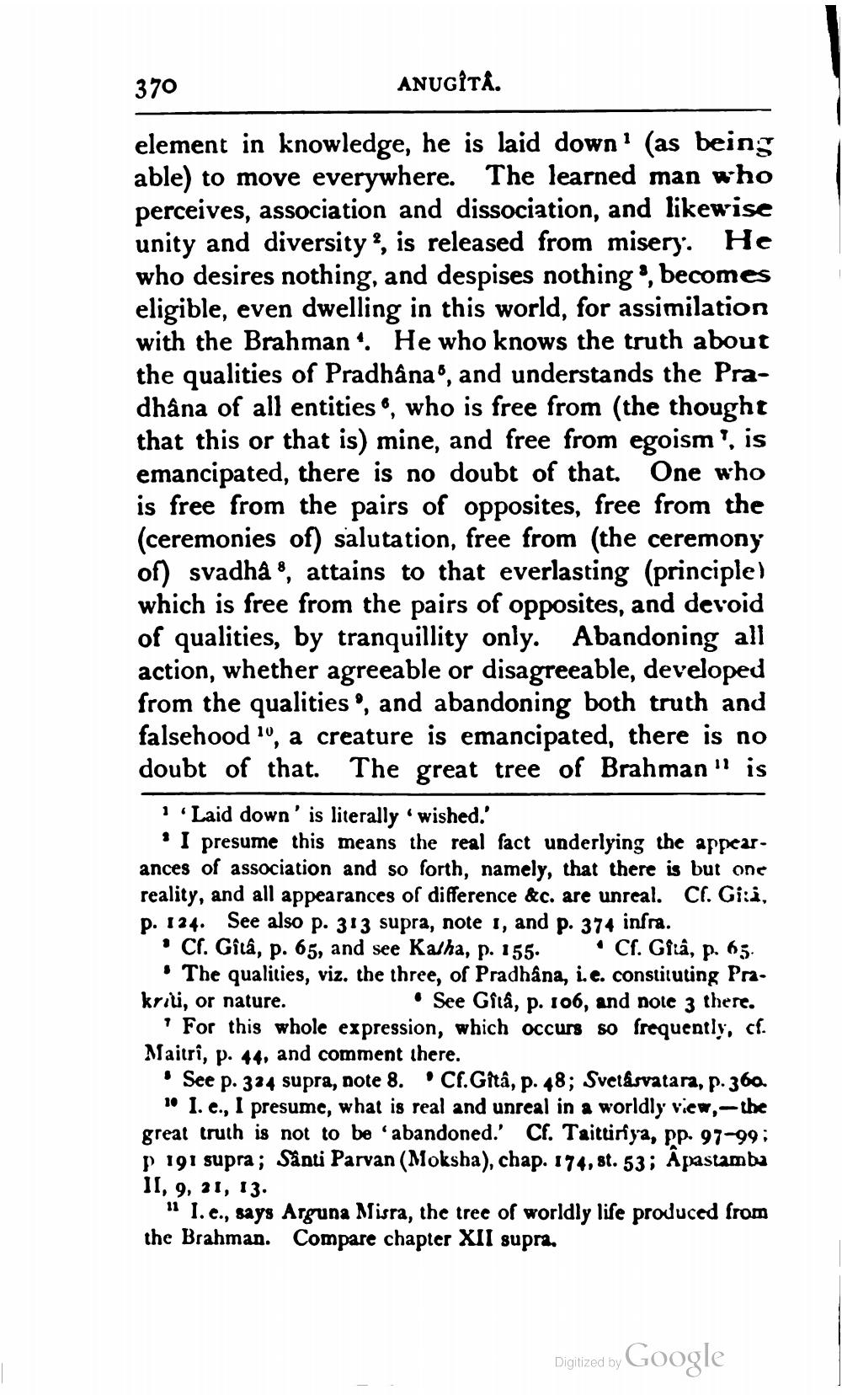________________
370
ANUGÍTÁ.
element in knowledge, he is laid down' (as being able) to move everywhere. The learned man who perceives, association and dissociation, and likewise unity and diversity, is released from misery. He who desires nothing, and despises nothing :, becomes eligible, even dwelling in this world, for assimilation with the Brahman. He who knows the truth about the qualities of Pradhana', and understands the Pradhâna of all entities o, who is free from (the thought that this or that is) mine, and free from egoism", is emancipated, there is no doubt of that. One who is free from the pairs of opposites, free from the (ceremonies of) salutation, free from (the ceremony of) svadha , attains to that everlasting (principle) which is free from the pairs of opposites, and devoid of qualities, by tranquillity only. Abandoning all action, whether agreeable or disagreeable, developed from the qualities o, and abandoning both truth and falsehood 10, a creature is emancipated, there is no doubt of that. The great tree of Brahman" is
1 Laid down' is literally wished.'
' I presume this means the real fact underlying the appearances of association and so forth, namely, that there is but one reality, and all appearances of difference &c. are unreal. CC. Gi:,, D. 124. See also p. 313 supra, note 1, and p. 374 infra.
• Cl. Gitâ, p. 65, and see Kalha, p. 155. • Cf. Giza, p. 65.
• The qualities, viz. the three, of Pradhana, i.e. constituting Pra. kriti, or nature.
• See Gîtâ, p. 106, and noic 3 there. For this whole expression, which occurs so frequently, cf. Maitri, p. 44, and comment there. . See p. 324 supra, note 8. Cf. Gitâ, p. 48; Svetäsvatara, p.360.
10 I. e., I presume, what is real and unreal in a worldly view,- the great truth is not to be 'abandoned.' Cf. Taittiriya, pp. 97-99; P 191 supra; Sånti Parvan (Moksha), chap. 174, st. 53; Âpascamba II, 9, 21, 13.
11 1.c., says Arguna Misra, the tree of worldly life produced from the Brahman. Compare chapter XII supra.
Digitized by Google




